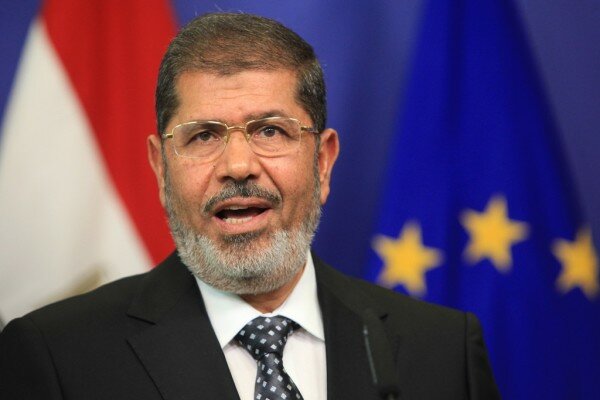
Former Egyptian president Mohamed Morsi. CC image courtesy of the European External Action Service, on Flickr.
While the citizens of Egypt’s primary focus may be somewhat distracted from the country’s future competitiveness in the global ICT market, the latest North African government overthrow is already having a direct influence on their daily communication wants and needs.
HumanIPO reported earlier today some broadcasting networks had been taken down by the new military-backed government and stakeholders both native and international will be keeping a close eye on what kind of interim and future government this will be concerning the rollout of vital broadband and mobile policies to further connect the country.
In the past three months alone there have been signs, both in words and concrete actions, that the government was taking connectivity seriously and foreign investors and companies were increasingly favouring Egypt as the next place to set up shop.
Egypt bucked the trend of its fellow North African countries and the traditional tech hubs of the continent – Nigeria, Kenya and South Africa – by increasing the external storage market industry year-on-year.
The International Data Corporation (IDC) put the “significant growth” down to “projects in the telecommunications and government sectors”.
Another example of Egypt’s flowering internet community was the outside investment attracted to the country’s first price comparison site, BKAM.com, from the United Arab Emirates-based Jabbar Internet Group.
The world’s first Arabic mobile payment wallet was also launched just last week in partnership with Etisalat, MasterCard and the National Bank of Egypt.
With the overthrow of the government and another round of elections looming, there will ultimately be another group ministers appointed and the need to get to know their departments and responsibilities.
Prior to the army intervention, Egypt’s minister of communications, Atef Helmy, had at least seemed to be saying all the right things, with a commitment to providing “open internet” to all in the country, while in April he launched a five year plan ICT plan.
One part of the plan was the country broadband initiative, which is set to begin in September 2013 with an investment total of US$6.4 million – 20 per cent of which is due to come from the government.
HumanIPO reported earlier today the International Telecommunications Union (ITU) believed governments which outlined frameworks or plans for their broadband rollout could expect to reap the results economically.
On this, at least, the former Egyptian government appeared to be getting it right, especially compared to the shambles of other African countries, an example of which is South Africa’s planned 100 per cent broadband penetration by 2020, which critics fear is little more than a pipe dream.
Will this five year plan be followed through by the next government or could the renewed uncertainty put off foreign investors who had just begun to regain confidence in the North African powerhouse?
Only in April the World Bank’s political risk guarantee agency launched a new insurance facility which hoped to attract more outside investment into post-conflict territories.
Egypt was listed among those which could benefit, but where does the country stand now?


















